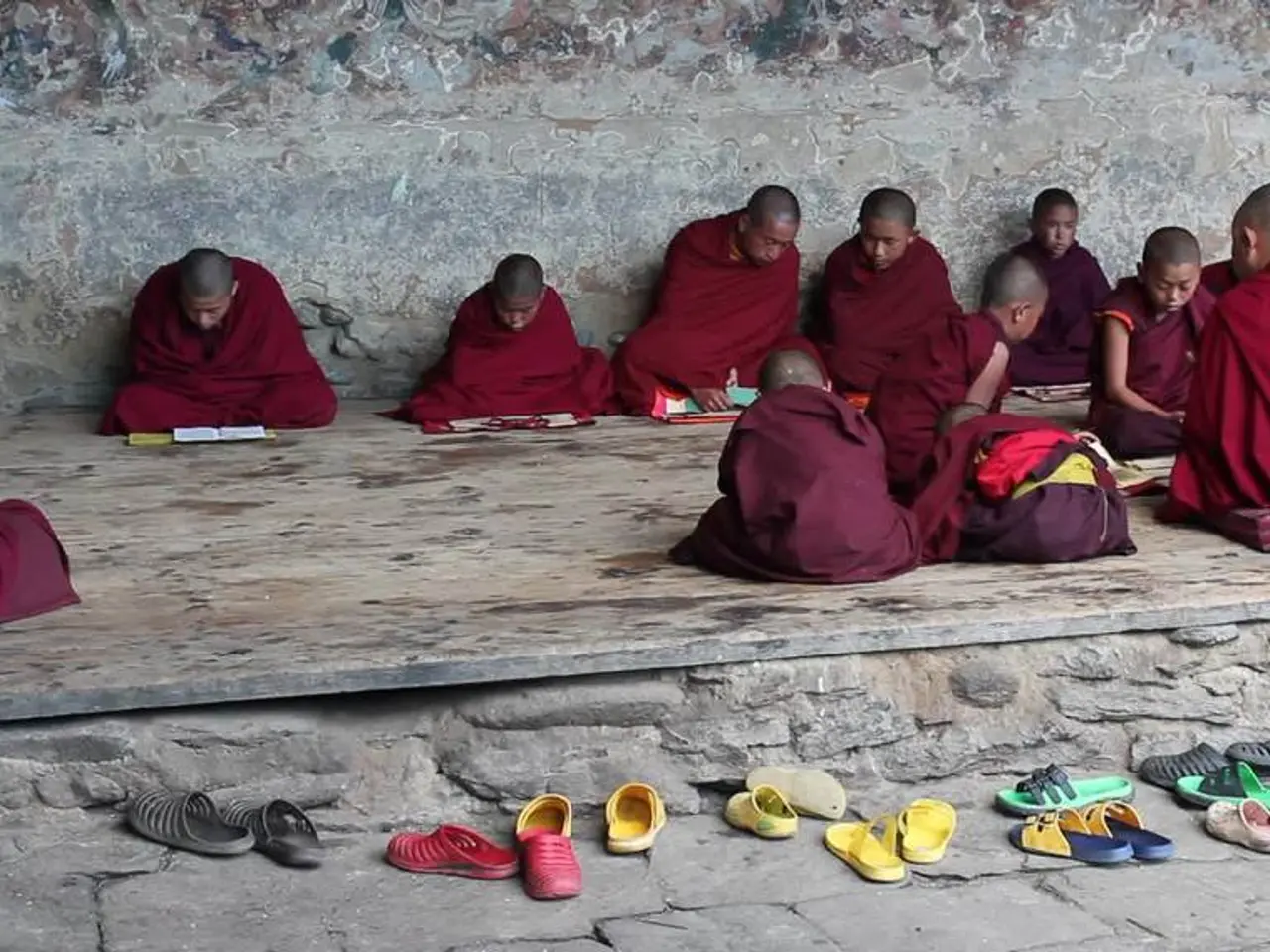One-third of Bangkok's monks are identified as being overweight, according to a recent investigation
In a recent health screening campaign, concerning health issues have been identified among Buddhist monks and novices in Bangkok. The campaign, which has been running since February, was carried out by Priest Hospital, the Department of Medical Services, and the Bangkok Metropolitan Administration (BMA).
The screening aimed to raise health awareness and provide evidence-based data to guide long-term strategies for monk healthcare nationwide. The project targeted 3,000 participants from 50 temples in Bangkok, and as of the current screening, 1,922 monks and novices from 49 temples have been screened.
Dr. Apichai Sirakuljira, who provided the statistics, reported health conditions including obesity, high cholesterol, anaemia, and widespread oral disease. In fact, 35.6% of the screened monks and novices were obese, 46.3% had high cholesterol, 20.4% had anaemia, and 88.3% had dental issues such as tartar build-up and gum disease.
Moreover, 17.8% of the screened participants suffered from hypertension, 10.5% had abnormal chest X-rays, and 5.9% had eye conditions. Additionally, 68.3% of the screened monks and novices reported hearing problems.
The screening results are delivered via the hospital's PRH Connect mobile app, with those at risk being referred to specialists for further treatment. Monks were also offered counselling on smoking cessation, the safe use of medicine, elderly care, and physical activity.
Dr. Taweesilp Visanuyothin, director-general of the Department of Medical Services, highlighted the need for systematic care for over 15,000 monks and novices in Bangkok. He stated that the ministry plans to use telemedicine, minimally invasive surgery, and robotic technology to provide medical services to monks and novices in the future.
Dr. Thanin Wedchapinun, the Deputy Director-General of the Ministry of Public Health in Thailand, also expressed his concern, stating that more than one-third of Buddhist monks and novices in Bangkok are overweight, and nearly half have high blood cholesterol. He added that 18.8% of the screened monks and novices had diabetes.
The health screening campaign has underscored the importance of regular health screenings and the need for targeted health interventions for this vulnerable population. Further efforts are expected to be made to ensure the well-being of Buddhist monks and novices in Bangkok.
Read also:
- Understanding Hemorrhagic Gastroenteritis: Key Facts
- Stopping Osteoporosis Treatment: Timeline Considerations
- Tobacco industry's suggested changes on a legislative modification are disregarded by health journalists
- Expanded Community Health Involvement by CK Birla Hospitals, Jaipur, Maintained Through Consistent Outreach Programs Across Rajasthan








